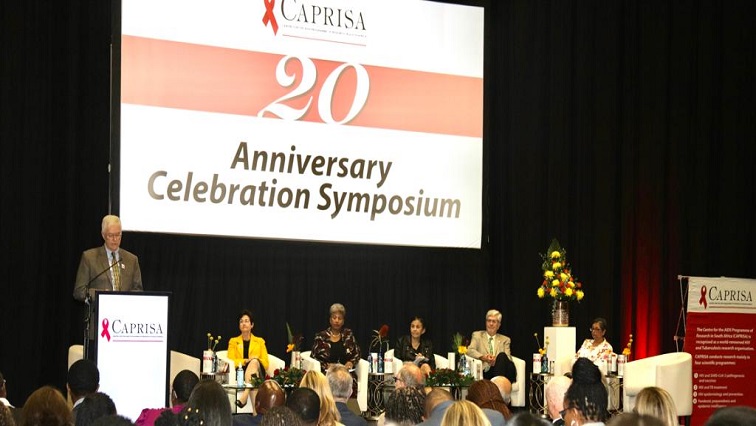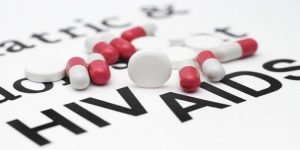The use of scientific expertise in government policymaking was crucial during the height of the COVID-19 pandemic. This emerged from a conference in Durban attended by some of the world’s top scientists to commemorate the Centre for the Aids Programme of Research in South Africa (CAPRISA)’s 20th anniversary.
CAPRISA has been at the forefront of research into HIV/Aids.
Epidemiologists reflected on how healthcare and governments had to function symbiotically to end global pandemics.
Marking two decades of medical science excellence, the centre was established in 2002 during the height of the HIV epidemic. It’s renowned internationally for outstanding evidence-based research through epidemiological, pathogenesis and treatment studies.
It has a global reputation for research excellence in infectious diseases.
COVID-19
During the COVID-19 pandemic, CAPRISA focused on research on the coronavirus variants.
Professor Salim Abdool Karim, Director of CAPRISA, elaborates: “We started providing first evidence that it wasn’t as clinically serious as other variants about a month later, we published and showed that clinically, Omicron was much less severe than other variants and of course six weeks later, Alex Seagull and his team produced the evidence to show that actually Omicron escapes Pfizer vaccination antibodies and so now knew that even those who were vaccinated were going to get infected with Omicron.”
Epidemiologists say as the coronavirus started to wreak havoc in different parts of the world, governments turned to scientists for the data, knowledge, and technology necessary to fight the new pandemic.
US Global Aids Coordinator, Dr John Nkengasong says, “We have to protect science and invest in science because the only reason that you and I are here now, and that the world has recovered is because of the remarkable science progress that we achieved during this COVID-19 pandemic. Within four weeks, we knew what the sequence of the virus was and that allowed us to produce a test and when I mean us, I mean the scientific community. Within one year, a vaccine was produced tested and administered; that is unprecedented in the history of infectious diseases.”
Scientists say the COVID-19 pandemic has been a wake-up call for governments and society, as Co-chairperson of the COVID-19 immunity Task Force of Canada, Professor Catherine Hankins, explains, “I think the pandemic has shown governments around the world that when we talk about health, when we talk about a disease or pandemic, that we are talking about something that has major and social economic consequence. It has to be a whole of society response and I think that’s what made it really clear. It’s a challenge to bring that home to everyone but the message has been heard and I think now we are seeing people start to prepare for the next pandemic and to make sure we do the right thing in terms of what our school policies are going to be, what our work policies are going to be how we are going to respond early so that we don’t get into what people call a once in a century pandemic…it’s not, there will be another faster than that.”
Landmark clinical trial
With Abdool Karim at the helm, CAPRISA’s research led to a landmark clinical trial in 2010 that provided the initial evidence that anti-retrovirals prevent sexual transmission of HIV.
Its research demonstrated that tenofovir gel prevents HIV infection and genital herpes in women. This laid the foundation for providing pre-exposure prophylaxis or PrEP as an HIV prevention approach.
Young women have the highest rates of HIV in Africa, which accounts for 70% of the global HIV burden.
“In trying to follow the change of transmission, we tried to identify where were most of the infections are occurring and what we unravelled was the cycle of HIV transmission and what was the cycle? Men in their late twenties and early thirties were the main source of infection in young teenage girls. That age difference was between eight and 10 years. So now, we had the source of HIV in young girls but what was happening was when the young girls grew up and reached their thirties, they were infecting males at that same age group, and so the cycle continued.”
Government has also lauded CAPRISA’S role in leading South Africa’s fight against the burden of disease.
Health Minister, Dr Joe Phaahla says “There was a time that Prof Karim’s name was unanimous with COVID-19. We believe that CAPRISA epitomises how great our country’s research can be and indeed we are one of the best research organisations and a role model not only in the country but on the continent and various parts of the world.”
The symposium also saw the launch of Abdool Karim’s debut book Standing Up for Science‘, a novel on his personal account from the frontlines of the COVID-19 pandemic, with lessons for future scientists.
Standing up for Science, available from 26 June at Exclusive Books @PanMacmillanSA @ExclusiveBooks @CUEpidemiology @UKZN pic.twitter.com/3uBTZEYEbH
— CAPRISA (@CAPRISAOfficial) June 24, 2023
COVID-19 Pandemic | Standing up for Science – Prof Salim Abdool Karim’s personal account of being on the frontlines of the pandemic:






